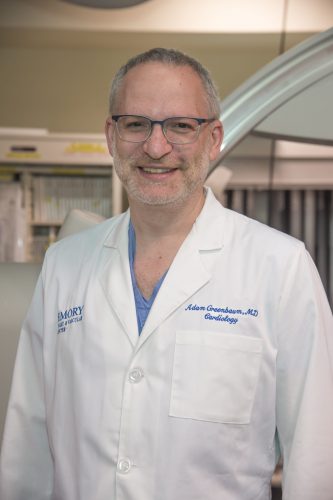Key Points
- Tricuspid regurgitation is a debilitating valve disorder characterized by shortness of breath, fatigue, and recurrent hospitalization for fluid retention.
- The PASCAL device (Edwards Life Sciences) is a transcatheter edge-to-edge clip that is used to perform tricuspid valve repair.
- The CLASP-TR study is a single-arm trial enrolling patients with severe tricuspid regurgitation to receive transcatheter edge to edge repair with the PASCAL device.
- At one year, in patients who remained alive, all patients had at least a one-grade improvement in their tricuspid regurgitation, with 75% having maintained an improvement of at least two grades.
Transcatheter valve interventions have taken off at a very quick pace. While clinical trials showing efficacy have been conducted for aortic and mitral valve disorders, the tricuspid valve has thus far been left behind. Transcatheter mitral valve edge to edge repair has been approved in patients with primary and secondary mitral regurgitation. The same concept has been translated to the right side of the heart, and trials assessing the TriClip (Abbott), are already underway.

In a Late-Breaking Clinical Trials Session at the 71st Annual American College of Cardiology Scientific Sessions today, Dr. Adam Greenbaum (Emory, Atlanta, GA), presented the one-year findings of the CLASP-TR study, assessing the ability of the PASCAL device to successfully perform transcatheter edge to edge repair, and to maintain those results out to one year.
In this single arm, nonblinded study, participants with severe functional or degenerative tricuspid regurgitation who remained symptomatic after optimization of medical therapy, were treated with the PASCAL repair system. The primary endpoint was a composite of major adverse events at 30 days. Enrolled patients had more comorbidities than found in typical feasibility studies. Participants were older, with a mean age of 77 years, mostly female (55%), with an STS score average of 7.7%. Almost half of the patients had renal insufficiency and 90% had atrial fibrillation. Of the 65 patients enrolled, implant was successful in 91% and procedural success, meaning successful decrease in TR by at least one grade, was achieved in 93%.
At 30 days, a composite of major adverse events was seen in 6 patients (9.2%). 2 patients died from cardiovascular causes. Major bleeding was noted in 5 patients. At 1 year, that composite major adverse event rate increased to 16.9% with cardiovascular death noted in 5 patients. In paired analyses at one year, 100% of patients had improvement of TR by at least one grade, 75% had improvement of at least two grades, and 86% achieved less than or equal to moderate TR in quantity. Of note, there was attrition in the follow-up due to the COVID-19 pandemic, making it difficult to perform quality of life assessments at one year. In the 39 patients who did receive QoL surveys, however, 92% had NYHA Class I and II symptoms. There was also an improvement in KCCQ scores and 6-minute walk distances for those assessed.
The authors concluded that the CLASP TR study showed safe, effective treatment of tricuspid regurgitation with the PASCAL device, but more data are needed for clinical implementation. As such, the randomized CLASP II TR (NCT04097145) pivotal trial is underway. “The survival of 88% at one year is encouraging compared to historical controls,” stated Dr. Greenbaum, adding that “longer follow-up is needed to determine how well the device continues to perform and how well patients do at two years or five years”.


